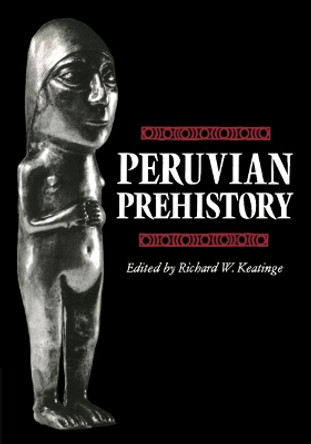Description
About the Author
Christopher Heaney is an Assistant Professor of History at the Pennsylvania State University. He is the author of Cradle of Gold: The Story of Hiram Bingham, a Real-Life Indiana Jones and the Search for Machu Picchu. He has written for the New Yorker, the Atlantic, the New York Times, and other publications, and was the co-founder of The Appendix, a journal of narrative and experimental history.
Reviews
To the Incas, mummies were ever-living ancestors. After colonial clergy hauled them from their caves, law exposed them to looting. Christopher Heaney opens a startling postcolonial chapter in this story. Victorian-age antiquarians traded in 'Inca' bones, believing skulls would reveal Amerindia's 'civilized' or 'primitive' racial nature. Relentlessly, astutely, Heaney tracks our scientific forebears through their bone stampede-and leaves us standing uneasy in our own museums. * Frank Salomon, University of Wisconsin *
Heaney deftly analyzes Native Andean, Peruvian, and US and European knowledge-making and the relations among them, showing that to understand ideas about race in the United States and Europe we must consider the experiences of US and European scientists abroad. Foreigners who collected Andean bones and skulls learned from local scientists, and their collecting was indebted as well to Andeans' own ways of dealing with dead ancestors. * Karin Alejandra Rosemblatt, author of The Science and Politics of Race in Mexico and the United States, 1910-1950 *
An outstanding, clear, and insightful examination of the transnational life of Andean mummies that have fascinated scholars for years and continue to do so to this day. * Marcos Cueto, Casa de Oswaldo Cruz, Fiocruz, Rio de Janeiro *
Archaeology is, of course, always about the past, but only after translation into the present tense. In Christopher Heaney's masterful telling, the sun-bleached mummified Incan crania on the Smithsonian's infamous Skull Wall become active agents in their own history. Their conflicted finders-keepers' legacy bridges the imperialist Golden Age of museum skull-collecting to link modern Peruvian institutions sometimes reclaiming some of those functions for themselves-all underscoring ongoing international debates over what should be done with the dead. * David Hurst Thomas, author of Skull Wars *
Empires of the Dead takes us from pre-contact display of emperors and ancestors to the present day...Empires of the Dead should shape current debates, if only by reminding us that today's museum collections are more accurately understood as 're-collections'. * Erin L. Thompson, LRB *
Heaney uses an impressive variety of archives to trace a five-century-long history of the Andean dead, from powerful and agential ancestors to tools of Spanish colonial power, objects of natural science, curiosities at the World's Fairs, specimens for racist theories-but also a way for Peruvians to reclaim their past. Thoroughly researched, this book succeeds brilliantly in unravelling the complicated history and untangling issues surrounding Andean human remains in both Western and Peruvian museums... Heaney's writing is engaging and clear and will appeal to specialists and nonspecialists alike. More than a history book, Empires of the Dead is a must-read for every Andean archaeologist and bioarchaeologist who seeks to contextualise and question their practice. * Amandine Flammang, Antiquity *
In Empires of the Dead, Heaney documents half a millennium of relations between the living and the dead in what we now call America, a period in which the latter have been venerated, plundered, burned, mourned, collected, 'harvested,' exported, hoarded, auctioned, exhibited, disputed and even repatriated... Heaney has a special talent for moving the historical narrative into the territory of contemporary anxieties. * Marco AvilA (c)s, El PaA s *
Book Information
ISBN 9780197542552
Author Christopher Heaney
Format Hardback
Page Count 368
Imprint Oxford University Press Inc
Publisher Oxford University Press Inc
Weight(grams) 728g
Dimensions(mm) 243mm * 165mm * 28mm








